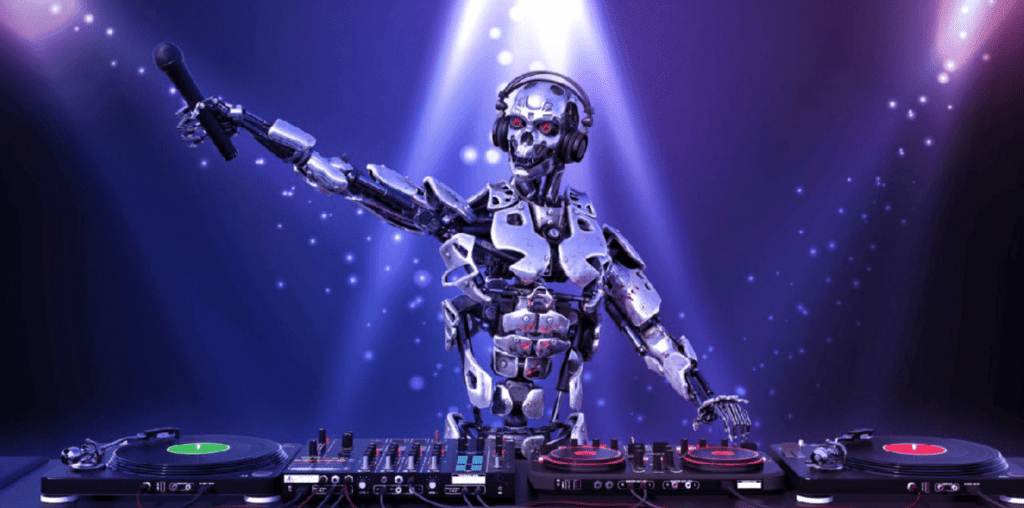“The Human Edge: Jobs that AI Can’t Replace 2023”
Table of Contents
Introduction
As technology continues to advance, the fear of AI replacing human jobs has become a concern. While AI undoubtedly brings many benefits and efficiencies to various industries, there are certain roles that still heavily rely on human expertise, creativity, and emotional intelligence. In this article, we will explore the Jobs that AI can’t replace in 2023., highligting the unique advantages human possess over machines. Understanding these essential roles will give us valuable insights into the future of work and the dynamic relationship between humans and technology.

Jobs that AI Can’t Replace 2023 – The Human Advantage:
1. Creative Professions: Nurturing Artistic Talent
AI has ability of generating basic art or music but true creativity, innovation and emotional expression are uniquely human traits. Jobs such as writers, artists, musicians, and designers require imagination and the ability to connect with audiences on a deeper level, something AI lacks.

2. Therapists and Counselors: Empathy and Emotional Support
In professions that involve understanding and guiding human emotions, AI’s limitations are evident. Therapists, counselors, and psychologists provide empathy and emotional support, essential for mental health, which AI cannot replicate.

3. Teachers and Educators: Tailoring Learning to Individual Needs
While AI can assist in the education sector, human teachers excel at personalized learning, recognizing each student’s strengths, weaknesses, and emotional needs. The human touch in education fosters a supportive and nurturing environment for students to thrive.

4. Social Workers: Dealing with Complex Human Situations
Jobs that involve addressing complex social and emotional issues, such as social workers and community advocates, require human empathy and the ability to understand nuanced human experiences.

5. Emergency Responders: Adaptability and Quick Decision-making
Emergency responders, including paramedics and firefighters, face unpredictable situations that demand quick decision-making and adaptability. Human instincts and emotional intelligence play a crucial role in these high-pressure scenarios.

6. Leadership Roles: Inspiring and Guiding Teams
Leadership positions require not only strategic thinking but also the ability to inspire and guide teams towards a shared vision. The emotional connection between leaders and their teams is vital for motivating success.

7. Ethical Decision-making: Understanding Moral Dilemmas
AI lacks moral agency, making ethical decision-making a uniquely human trait. Jobs that require navigating complex moral dilemmas, such as judges, lawmakers, and ethicists, remain firmly in human hands.

8. Research and Development: Innovation and Critical Thinking
Innovation and critical thinking are paramount in research and development fields. Human researchers excel at forming connections, thinking outside the box, and pushing the boundaries of knowledge.

9. Customer Service: Empathetic Problem Solving
Jobs in customer service rely on understanding customers’ needs, emotions, and resolving their concerns empathetically, making them less susceptible to AI replacement.

10. Entrepreneurs: Vision and Risk-taking
Entrepreneurs take risks and innovate, fueled by their unique vision and passion. AI lacks the ability to envision new business concepts and take calculated risks.

11. Content Creation: Engaging Human Audiences
Content creation, whether in writing, video production, or social media, depends on the ability to resonate with human emotions and interests, making it a domain where humans excel.

12. Physical Artisans: Craftsmanship and Precision
Jobs that involve intricate craftsmanship, such as carpenters, jewelers, and artisans, demand the human touch, as AI struggles with the delicate precision and artistry required.

13. Personal Care: Compassion and Understanding
Professions like nurses and caregivers require a deep sense of compassion and understanding, something AI cannot replicate in human-to-human interactions.

14. Professional Athletes: Creativity and Physical Skill
Professional athletes combine creativity, strategy, and physical skill in ways that AI cannot match, making sports a realm reserved for human prowess.

15. Coding and Programming
AI can automate certain repetitive and mundane coding tasks, such as generating boilerplate code or performing code optimizations based on patterns. This can increase developers’ productivity and efficiency, allowing them to focus on more creative and complex aspects of coding.
However, coding is not just about writing lines of code; it involves problem-solving, critical thinking, and creativity, which are uniquely human traits. AI lacks the ability to fully comprehend complex business requirements, design intuitive user interfaces, or create innovative solutions to novel problems.

FAQs:
Can AI fully replace human creativity?
AI can mimic some aspects of creativity, but true innovation, emotional expression, and imagination remain distinct human attributes that are difficult for AI to replicate fully.
Will AI replace teachers in the future?
While AI can support and enhance the learning process, human teachers offer personalized attention, emotional support, and adaptability to diverse student needs, making them irreplaceable.
Can AI be ethical in decision-making?
AI lacks moral agency and relies on human input to make ethical decisions. The responsibility for ethical choices ultimately lies with human designers and operators.
What makes customer service by humans better than AI?
Human customer service agents possess empathy and emotional intelligence, allowing them to understand customers’ emotions and needs, resulting in a more personalized and satisfactory experience.
Is AI capable of true emotional understanding?
AI can recognize patterns and respond to certain emotions based on data








One Comment